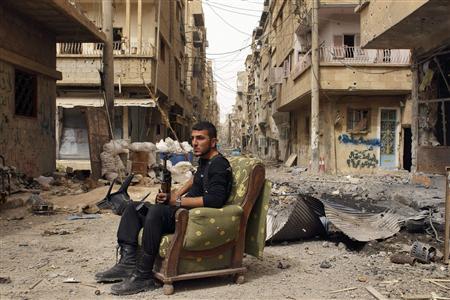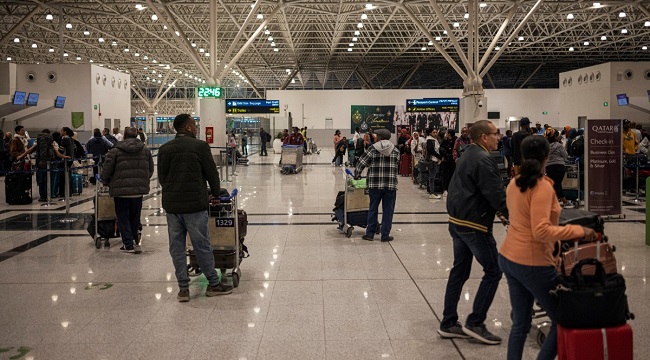The White House on Thursday said that the Syrian government led by President Bashar al-Assad had probably used chemical weapons on a small scale in the country’s civil war, but insisted that President Barack Obama needed definitive proof before he would take action.
The disclosure created a quandary for Obama, who has set the use of chemical weapons as a “red line” that Assad must not cross. It triggered calls from some hawkish Washington lawmakers for a U.S. military response, which the president has resisted.
In a shift from a White House assessment just days earlier, U.S. officials said the intelligence community believed with “varying degrees of confidence” that the chemical nerve agent sarin was used by Assad’s forces against rebel fighters. But it noted that “the chain of custody is not clear.”
While Obama has declared that the deployment of chemical weapons would be a game-changer and has threatened unspecified consequences if it happened, his administration is moving carefully – saying it is mindful of the lessons of the start of the Iraq war more than a decade ago.
Then, the George W. Bush administration used inaccurate intelligence to justify the invasion of Iraq in pursuit of nuclear, chemical and biological weapons that turned out not to exist.
“Given the stakes involved and what we have learned from our own recent experiences, intelligence assessments alone are not sufficient – only credible and corroborated facts that provide us with some degree of certainty will guide our decision-making,” Miguel Rodriguez, White House director of the office of legislative affairs, said in a letter to lawmakers.
One senior U.S. defense official told reporters, “We have seen very bad movies before,” where intelligence was perceived to have driven policy decisions that later, in the cold light of day, were proven wrong.
The term “varying degrees of confidence” used to describe the assessment of possible chemical weapons use in Syria usually suggests debate within the U.S. intelligence community about the conclusion, the defense official noted.
The White House said the evaluation that Syria probably used chemical weapons was based in part on “physiological” samples. But a White House official, briefing reporters on condition of anonymity, repeatedly declined to say what that evidence was. Nor is it clear who supplied it.
Chemical weapons experts say sarin, a nerve agent, can be detected in human tissue, blood, urine and hair samples, or in nearby soil or even leaves. But the chemical can dissipate within days or weeks, depending on ambient heat, wind and other factors.
Iraq is said to have used sarin 25 years ago in an attack on the Kurdish city of Halabja during the Iran-Iraq war. More recently, the agent was used in the 1994 attack by a religious cult on riders of the Tokyo subway system.
In Syria, U.S. officials said the scale of the use of sarin appeared limited. Nobody is “seeing any mass casualties” from the possible use of chemical weapons in Syria, one U.S. intelligence official noted.
The United States has resisted being dragged militarily into Syria’s conflict and is providing only non-lethal aid to rebels trying to overthrow Assad. Washington is worried that weapons supplied to the rebels could end up in the hands of al Qaeda-linked fighters.
But acknowledgement of the U.S. intelligence assessment appeared to move the United States closer – at least rhetorically – to some sort of action in Syria, military or otherwise.
A White House official told reporters that “all options are on the table in terms of our response” and said the United States, which has been criticized for not doing enough to halt the bloodshed, would consult with its allies.
The official said the U.S. military was preparing for a range of “different contingencies,” but declined to give specifics. Options available to Obama could include everything from air strikes to commando raids to setting up a Libya-style “no-fly” zone, either unilaterally or in cooperation with allies.





